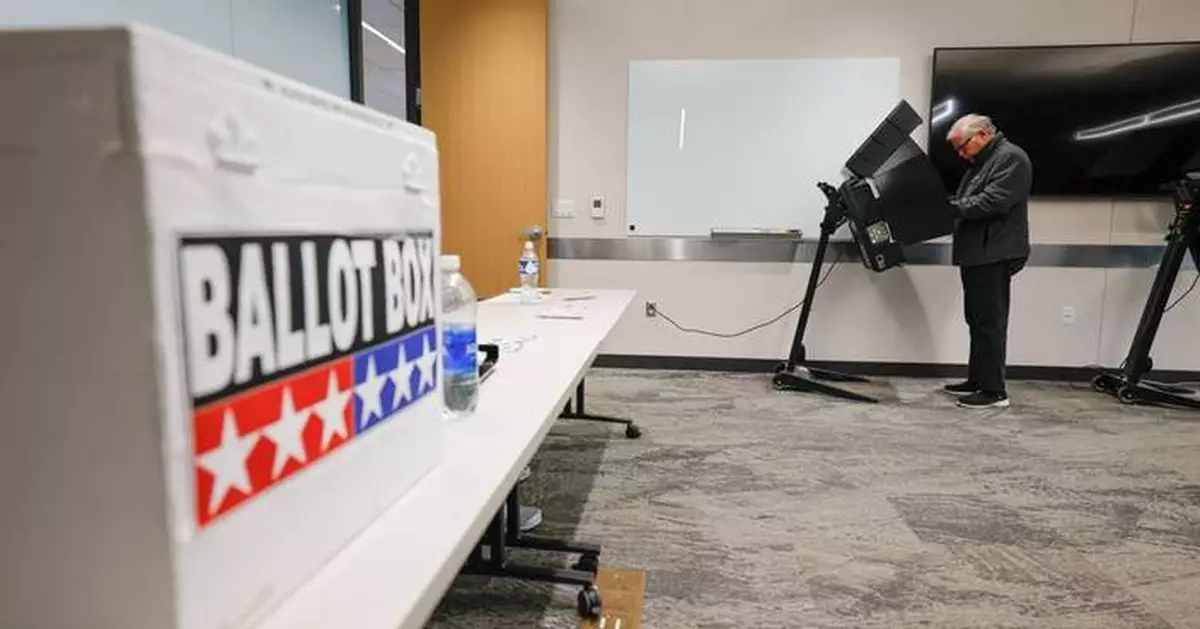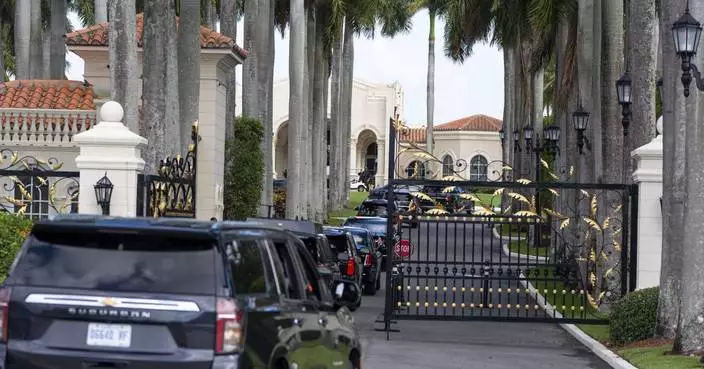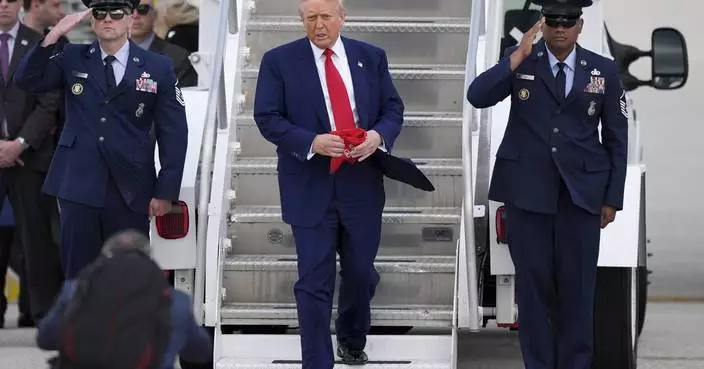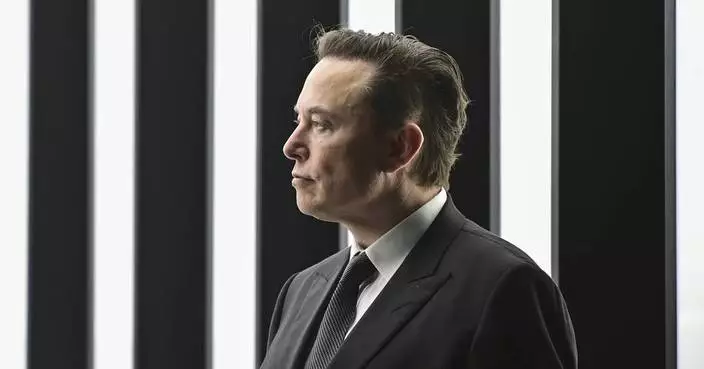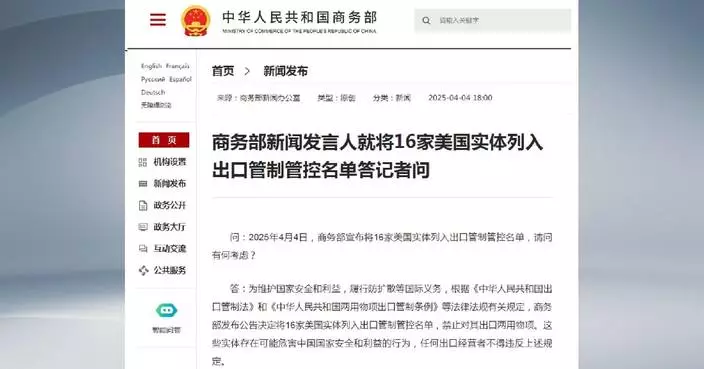MADISON, Wis. (AP) — Wisconsin voted Tuesday for Jill Underly to remain as the state's top education official during President Donald Trump’s second term, choosing the Democratic-backed incumbent over a Republican-supported critic.
Wisconsin voters also decided to enshrine the state’s voter ID law in the state constitution.
Both contests had sharp partisan divisions, though they have drawn far less spending and national attention than the race for control of the Wisconsin Supreme Court.
Here’s a look at the two races:
Underly, the Democratic-backed state education chief, defeated her Republican-aligned opponent, Brittany Kinser. Unofficial results showed Underly with almost 53% of the vote with 85% of votes counted statewide.
“Tonight, we celebrate a victory not just for our campaign, but for every educator, family and most importantly - kids - across our great state,” Underly said in a statement.
Underly will guide policies affecting K-12 schools as Trump moves to eliminate the U.S. Department of Education. Her second term comes at a time when test scores are still recovering from the pandemic, Wisconsin’s achievement gap between white and Black students remains the worst in the country and more schools are asking voters to raise property taxes to pay for operations.
Wisconsin is the only state where voters elect the top education official but there is no state board of education. That gives the superintendent broad authority to oversee education policy, from dispersing school funding to managing teacher licensing.
Underly, 47, had the support of the teachers union in the general election after failing to secure it in the three-person primary. She also was backed financially by the state Democratic Party.
Underly, who was first elected as state superintendent in 2021, ran as a champion of public schools. Kinser supports the private school voucher program.
Underly’s education career began in 1999 as a high school social studies teacher in Indiana. She moved to Wisconsin in 2005 and worked for five years at the state education department. She also was principal of Pecatonica Elementary School for a year before becoming district administrator.
Kinser, whose backers included the Wisconsin Republican Party and former Republican Govs. Tommy Thompson and Scott Walker, previously worked for Rocketship schools, part of a national network of public charter institutions. She rose to become its executive director in the Milwaukee region.
In 2022 she left Rocketship for City Forward Collective, a Milwaukee nonprofit that advocates for charter and voucher schools. She also founded a consulting firm where she currently works.
Kinser tried to brand Underly as being a poor manager of the Department of Public Instruction and keyed in on her overhaul of state achievement standards last year.
Underly said that was done to better reflect what students are learning now, but the change was met with bipartisan opposition including from Democratic Gov. Tony Evers, who was previously state superintendent himself. Evers did not make an endorsement in the race.
Kinser said in a statement late Tuesday that she hopes her candidacy inspired conversations about restoring high standards and making sure children can read, write and do math.
“Our kids' future shouldn't rest on the politicization of our education system, but on the belief that our kids deserve so much better than they currently receive,” she said.
Wisconsin voters overwhelmingly elevated the state's photo ID requirement from state law to constitutional amendment under a proposal approved by voters.
Unofficial results showed the amendment passing with almost 63% of the vote with almost 90% of ballots counted.
The Republican-controlled Legislature placed the measure on the ballot and pitched it as a way to bolster election security and protect the law from being overturned in court.
President Donald Trump trumpeted the measure's approval on his social media platform, Truth Social, calling it “maybe the biggest win of the night.”
“It should allow us to win Wisconsin, like I just did in the presidential election, for many years to come!" he said.
Trump narrowly lost Wisconsin to Joe Biden in 2020 but defeated Kamala Harris last November election to claim its 10 electoral votes.
Elon Musk, the world’s richest man, who is leading Trump’s efforts to shrink the federal government, also noted the outcome on his social media platform, X, saying: “Yeah!”
Democratic opponents argued that photo ID requirements are often enforced unfairly, making voting more difficult for people of color, disabled people and poor people.
All Voting is Local, a nonpartisan voting rights organization, warned that placing the photo ID mandate in the constitution will make it harder to vote.
“We should not be purposefully leaving eligible voters behind by setting up additional barriers to the ballot, but unfortunately, those in the Badger State have one more step to take before voting,” Sam Liebert, the organization's state director, said in a statement.
Wisconsin voters won't notice any changes when they go to the polls. They will still have to present a valid photo ID just as they have under the state law, which was passed in 2011 and went into effect permanently in 2016 after a series of unsuccessful lawsuits.
Placing the photo ID requirement in the constitution makes it more difficult for a future Legislature controlled by Democrats to change the law. Any constitutional amendment must be approved in two consecutive legislative sessions and by a statewide popular vote.
Wisconsin is one of nine states where people must present photo ID to vote, and its requirement is the nation’s strictest, according to the National Conference of State Legislatures. Thirty-six states have laws requiring or requesting that voters show some sort of identification, according to the NCSL.
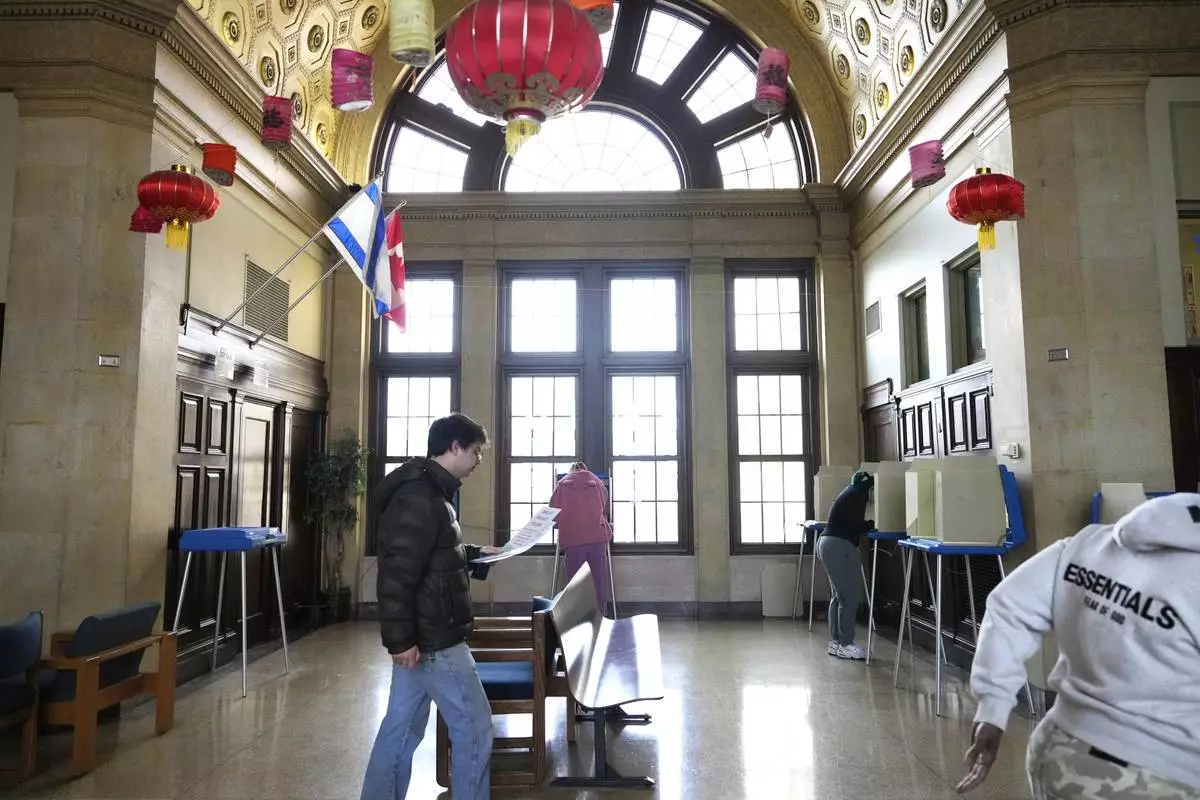
Maximillian Marquez, left, walks to a voting booth at the Milwaukee Academy of Chinese Language to cast a ballot in the state's Supreme Court election, Tuesday, April 1, 2025, in Milwaukee. (AP Photo/Kayla Wolf)
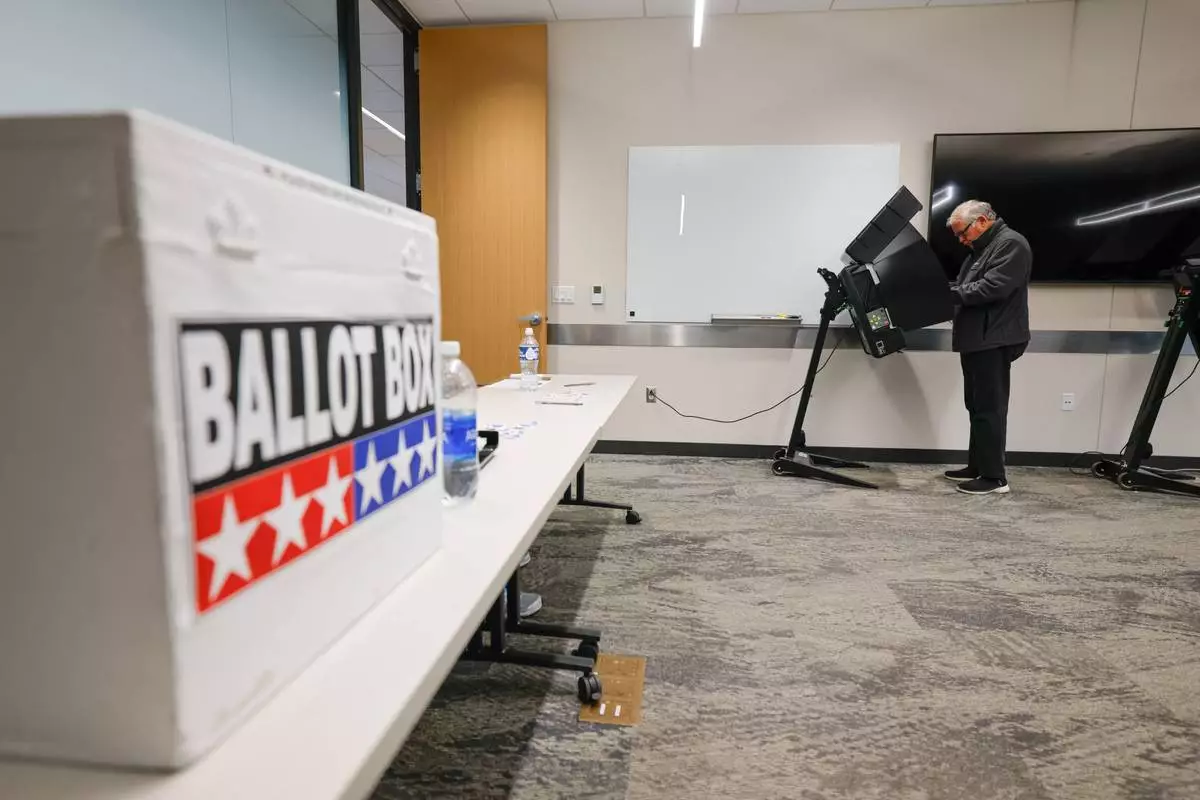
A voter casts a ballot during early voting in Waukesha, Wis., Tuesday, March 18, 2025. (AP Photo/Jeffrey Phelps)
WASHINGTON (AP) — As stock markets tumble in the aftermath of President Donald Trump's sweeping tariffs, Republicans in Congress were watching with unease and talking of clawing back their power to levy tariffs — but almost none seemed ready to turn their words into action.
The Republican president is upending longstanding GOP principles like support for free trade, yet despite clear misgivings and a Constitutional mandate to decide tariffs, most lawmakers were not ready to cross Trump. Instead, they were focusing all their attention on advancing the president's " big, beautiful bill ” of tax breaks and spending cuts, even as tariffs — in essence, import taxes — threatened to raise consumer prices across the board and push the global economy into a recession.
As the fallout from Trump's announcement reverberated around global markets, Senate Majority Leader John Thune, who has made it clear he is no fan of tariffs, told reporters that he would give Trump "the benefit of the doubt” in hopes that the announcement was just a scare tactic to prod foreign leaders into negotiating better trade deals with the U.S.
“The president is a dealmaker if nothing else, and he's going to continue to deal country by country with each of them,” said Sen. John Barrasso, a Wyoming Republican who is no. 2 in GOP Senate leadership. He added that Treasury Secretary Scott Bessent had told Senate Republicans this week that the tariffs announced by Trump would be a “high level mark with the ultimate goal of getting them reduced” unless other countries retaliate.
But countries like China are already retaliating with tariffs of their own, and while the president has signaled he is open to negotiations, he was mostly sounding a defiant tone Friday, saying on social media that “MY POLICIES WILL NEVER CHANGE” while claiming that foreign investors were lining up to invest in U.S. industries. He was on the golf course Friday near his Mar-a-Lago private club in Florida.
Congress, however, was jittery.
A handful of Republicans have rebuked Trump's strategy as a foolhardy path that will burden U.S. households. Kentucky Sen. Mitch McConnell, the longtime Senate leader who was the standard-bearer for past generations of Republicans, released a lengthy statement saying, “As I have always warned, tariffs are bad policy, and trade wars with our partners hurt working people most.”
McConnell and three other Republicans joined with Democrats this week to help pass a resolution that would nullify Trump's tariffs on Canada, sending a rebuke to the president just hours after his “Liberation Day” announcement. But House Speaker Mike Johnson quickly indicated he has no interest in giving the resolution a vote.
Lawmakers' struggle to act showed the divide among Republicans on trade policy, with a mostly younger group of Republicans fiercely backing Trump's strategy. Rather than heed traditional free trade doctrine, they argue for “America First” protectionism and hope it will revive U.S. manufacturing.
Republican Sen. Josh Hawley said that workers in his home state of Missouri were “absolutely thrilled” with the tariffs. “We've been losing jobs left and right. Farmers want to see a fair deal for our products, both in Canada and in Mexico and from the (European Union)," he added.
For their part, Democrats slammed Trump's tariffs as a reckless maneuver meant to do nothing more than raise funds for the tax breaks Trump and Republicans are trying to pass.
“Why would he raise the costs on American families by $5,000, as it’s estimated? Simply because his very wealthy billionaire friends want a greater tax break,” Senate Democratic Leader Chuck Schumer said in a floor speech Friday.
Other Republicans were looking for roundabout ways to at least check the president's power on trade policy. Sen. Chuck Grassley, a senior Republican from Iowa, introduced a bipartisan bill Thursday that would require presidents to justify new tariffs to Congress. Lawmakers would then have to approve the tariffs within 60 days, or they would expire.
Although Grassley emphasized that he had long been working on the idea, the timing of the bill was notable. It gave Republicans a chance to talk about their distaste for import taxes and raised the prospect of Congress clawing back some of its power over tariffs. The Constitution gives Congress the responsibility of setting taxes and tariffs, but over the last century, lawmakers have ceded much of their power over import taxes to the president.
A handful of Republicans said they were favorable to Grassley's proposal, though the idea of directly defying Trump seemed to squelch potential for quick action.
“I don’t want to do it in a politically charged environment,” said Sen. Mike Rounds, a South Dakota Republican. “But I absolutely agree. This was set up by the Founding Fathers to be Congress’s role. And, I think we’re way past the point of what the Founding Fathers ever wanted to have happen."
Democratic Sen. Brian Schatz seized on the hesitation from Republicans, saying on social media Friday that the Senate would overwhelmingly repeal or constrain tariff authority “if every Senator voted their conscience and their state’s interest.”
“Mostly everyone hates this, they are just too afraid of the Mad King at the moment,” Schatz added.
Sen. John Kennedy, a Louisiana Republican, also predicted the bill would never pass “because of the voting requirements in the Senate.”
But he was still taking to social media to offer a folksy bit of advice: “Tariffs are like whiskey: A little whiskey, under the right circumstances, can be refreshing — but too much whiskey, under the wrong circumstances, can make you drunk as a goat.”
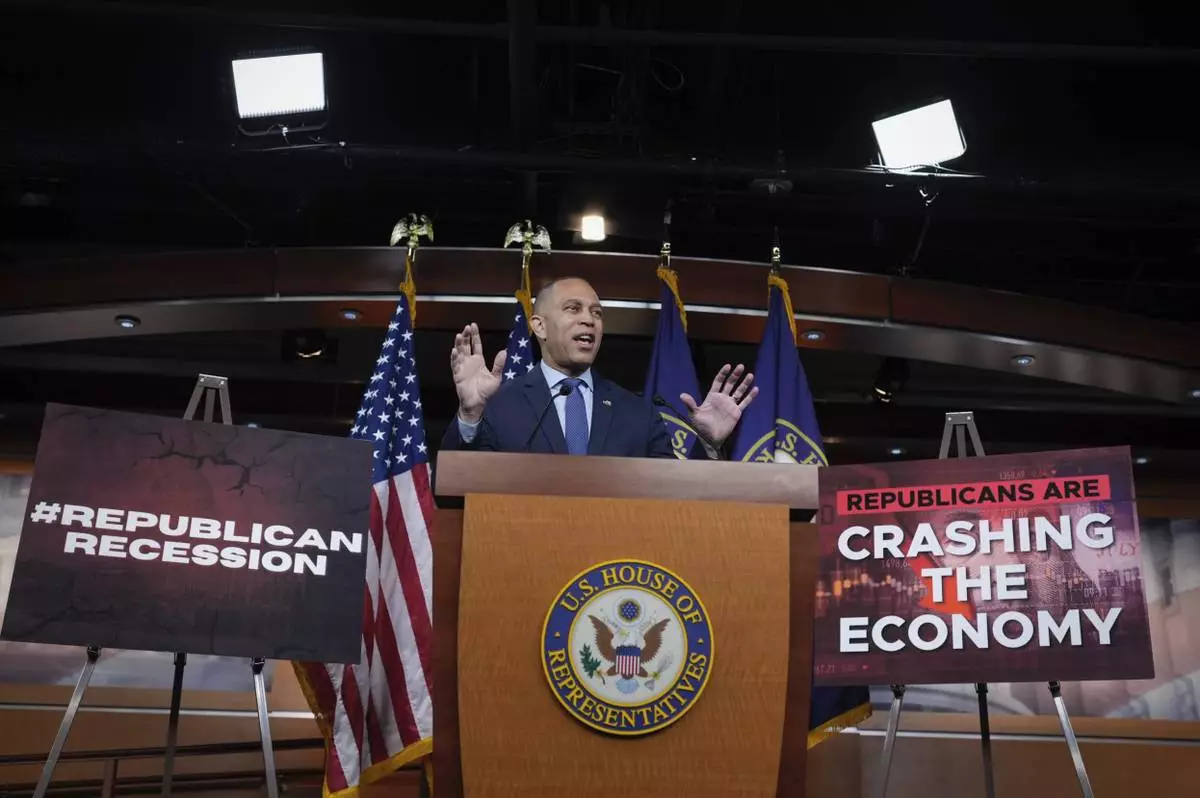
House Minority Leader Hakeem Jeffries, D-N.Y., criticizes the agenda of President Donald Trump and the tactics of billionaire Elon Musk in a pivotal Wisconsin election where Democrats won, during a news conference at the Capitol, in Washington, Wednesday, April 2, 2025. (AP Photo/J. Scott Applewhite)
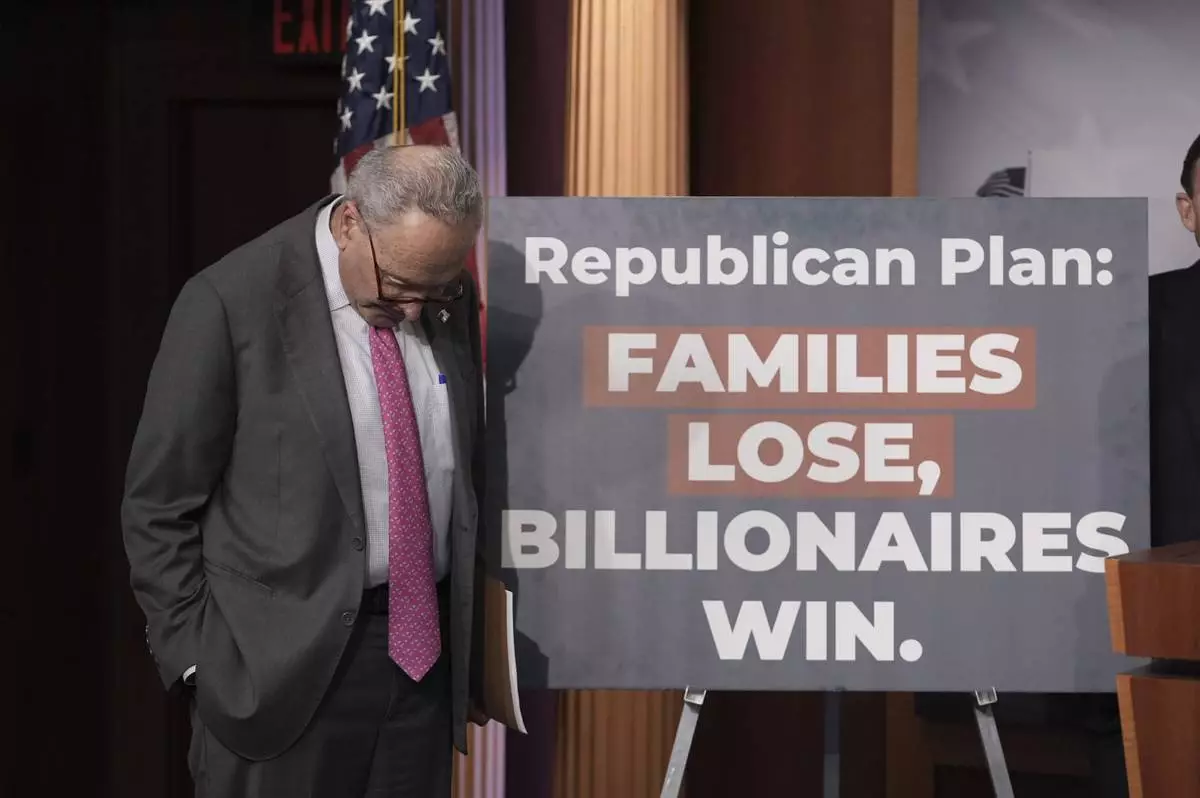
Senate Minority Leader Chuck Schumer, D-N.Y., attends a news conference discussing the Republican-backed budget plan at the Capitol, in Washington, Thursday, April 3, 2025. (AP Photo/J. Scott Applewhite)
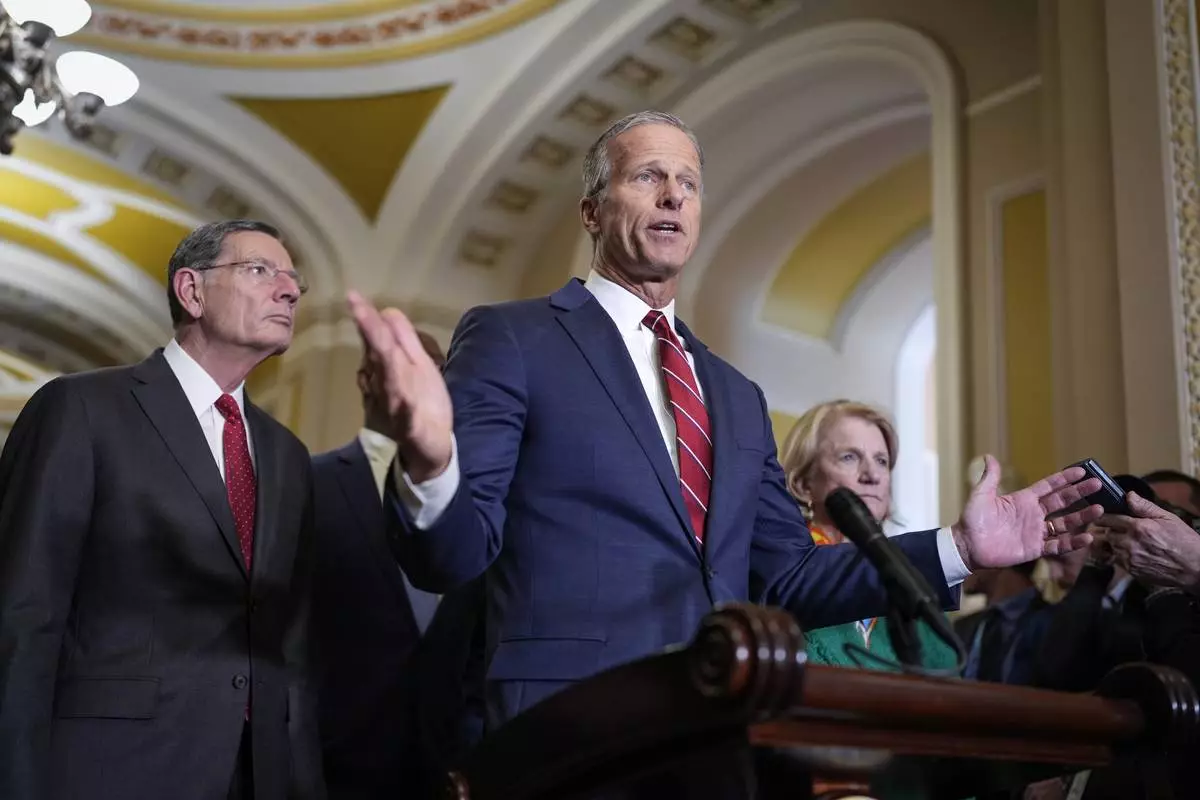
Senate Majority Leader John Thune, R-S.D., joined by Sen. John Barrasso, R-Wyo., the GOP whip, left, talks to reporters ahead of announcements by President Donald Trump on tariffs, at the Capitol, in Washington, Tuesday, April 1, 2025. (AP Photo/J. Scott Applewhite)
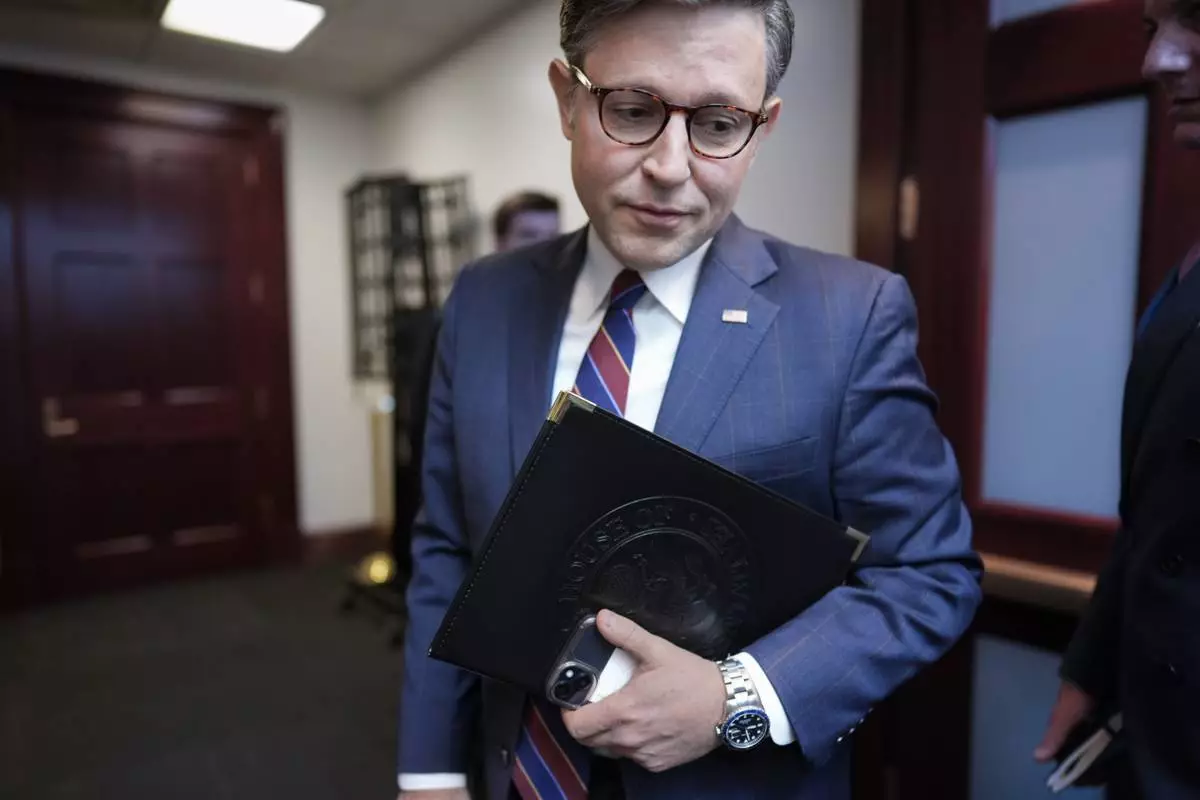
Speaker of the House Mike Johnson, R-La., talks with reporters as he arrives for a closed-door strategy session with fellow Republicans ahead of announcements by President Donald Trump on tariffs, at the Capitol, in Washington, Tuesday, April 1, 2025. (AP Photo/J. Scott Applewhite)
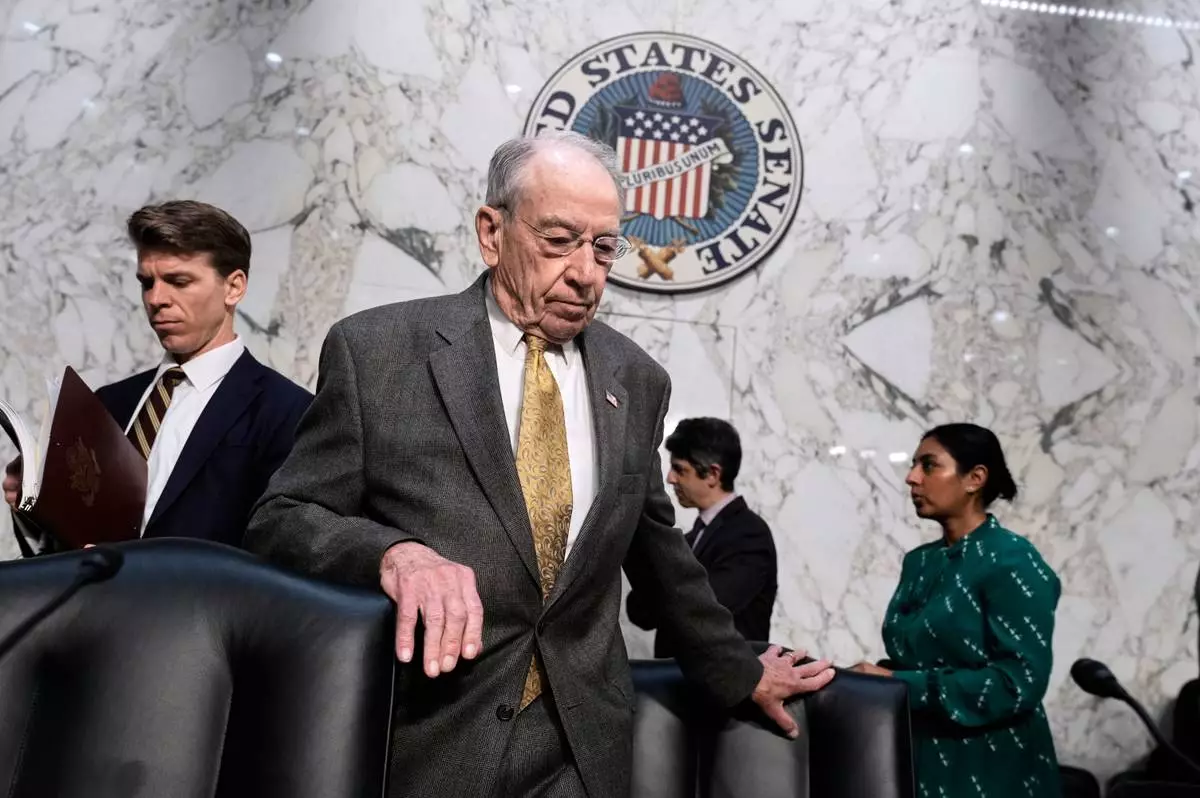
Senate Judiciary Committee Chairman Chuck Grassley, R- Iowa, takes his seat as the panel meets to consider prescription drug pricing and other measures, at the Capitol in Washington, Thursday, April 3, 2025. (AP Photo/J. Scott Applewhite)




